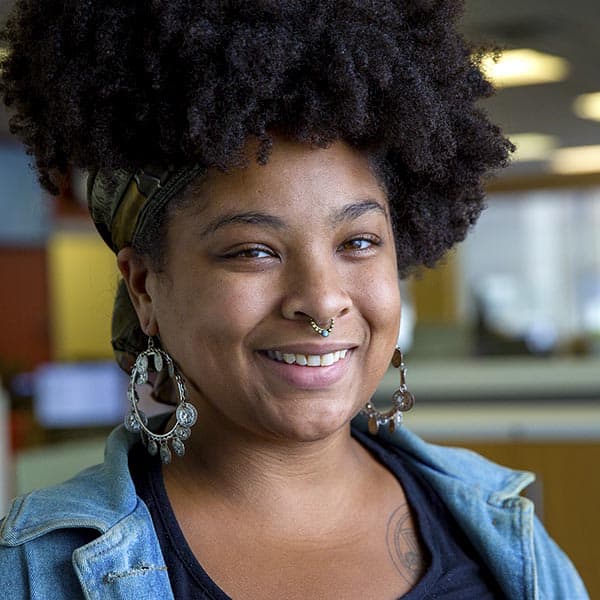Advertisement
Field Guide to Boston
These tours highlight the hidden history of Black Boston
Resume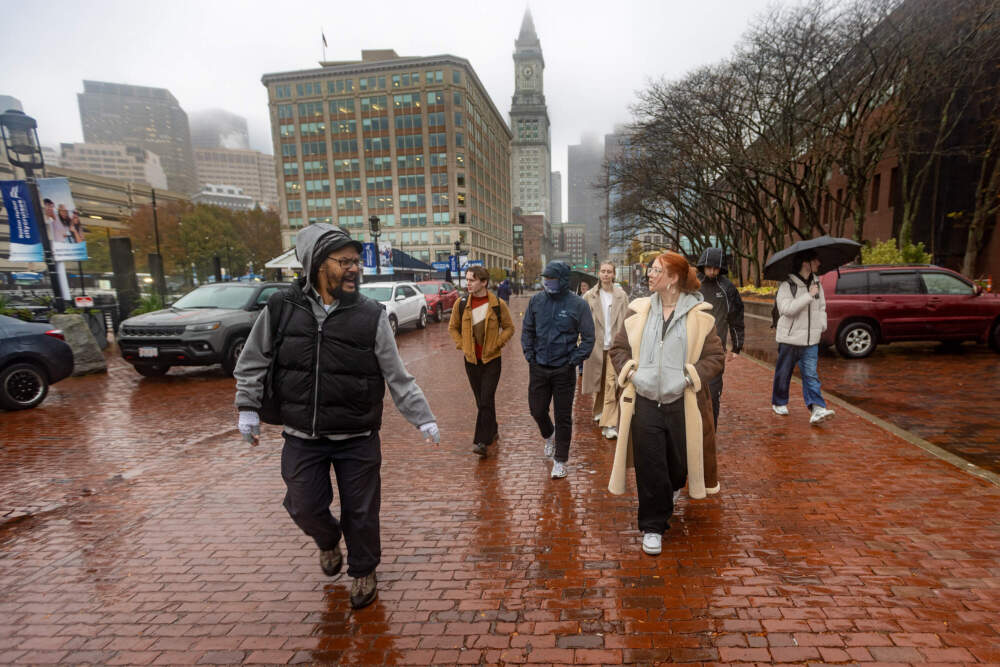
Boston is famous for being the home of historic sites like the Boston Tea Party and the house of Paul Revere. But the city has a history that is often overlooked and underrepresented, says researcher and educator Joel Mackall. He's the founder of ReIdren Business Group, an organization that focuses on genealogy and teaching Black history." [It's] a very hard thing to sell in Boston," he says.
It's the reason why he started the Hidden History of Black Boston tours 16 years ago. Before he created ReIdren Business Group, Mackall worked for 10 years in the corporate world until he "couldn't do it anymore. I left and made a pilgrimage down to one of my grandfather's only remaining sisters who lived in Suitland, Maryland," he says. He stayed for a month, doing research on the genealogy of his family. When he returned to Boston, Mackall had the idea for his new venture and a passion for educating people about Black history through tours and workshops. Soon enough, he was renting vans and giving both driving and walking tours of Boston.
The tours highlight the lives and contributions of Black Bostonians in different areas of the city, including Beacon Hill and the South End. One tour in particular focuses on lesser known Black history in and around the North End. Mackall starts at the Rose Kennedy Greenway.
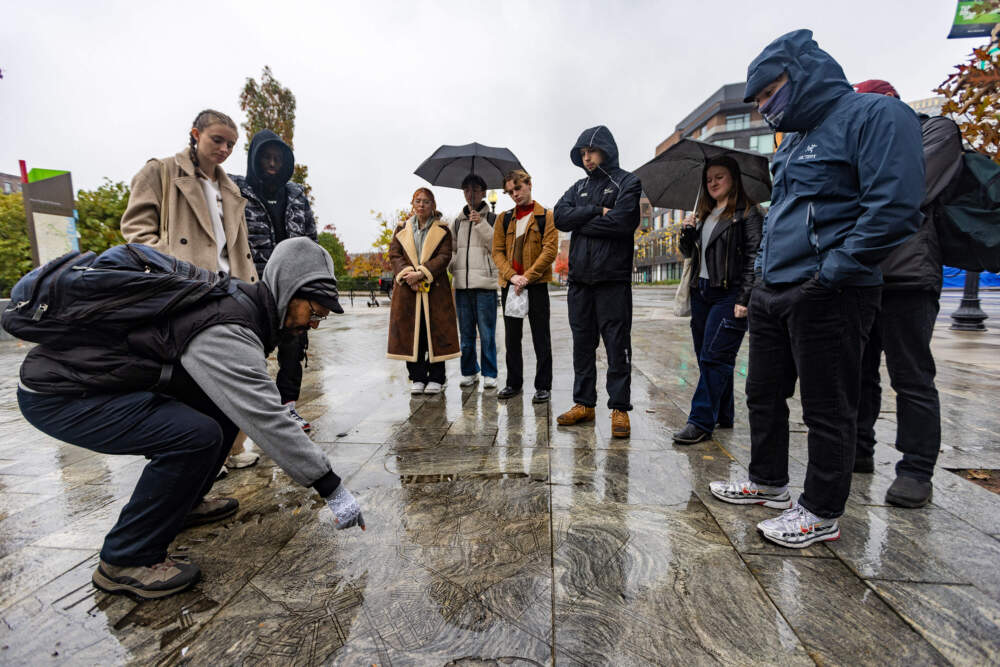
"I always start out the tour with three African women," Mackall says, stopping by a stone with faded carved lettering. It's a monument to Zipporah Atkins, the first Black woman on record to acquire property as a free woman. "She was born in Boston in the 1650s to enslaved Africans. At the time of her birth, Massachusetts didn't have a law saying that slavery was heritable, so she was born free... Her property was right here in this area going in towards the North End."
The two other women Mackall talks about are Hagar Blackmore and an unnamed woman he calls "Queen Kickt." "Blackmore was the first African woman in the New World to explain how she understood slavery and freedom," Mackall says. "At six months pregnant, Blackmore testified in Middlesex County Court in April 1669 in a fornication case in which she had been convicted. She faced a punishment of a fine, a whipping, or both. Her master's son, John, was held liable for support of the child she was carrying."
The Puritans were intent on punishing "fornication" among Africans as well as their own people, Mackall explains. Blackmore told the court that she'd been stolen away from her husband and her infant. "For her, slavery was a form of theft in which she had been robbed of her husband and baby and transformed into a form of property," says Mackall.
"Queen Kickt," as Mackall calls her, was an unnamed woman, enslaved by the Maverick family "An Account of Two Voyages to New-England" by John Josselyn documents his voyages to Boston in 1638 and 1668. He visited the Maverick property where one night, he took note of a Black woman who was in hysterics. This woman, whose name is lost to time, would not consent to being forcibly bred with another enslaved man. "That happened right out on Noddle's Island in the harbor," Mackall says. "This is one of the early examples of mass industrial rape... So this is a man documenting anti-Black treatment in the beginning, in the 1630s."
The rest of "Queen Kickt"'s story is lost to time. This history is important, says Mackall, because there is a prevailing myth that slavery in the North was somehow less brutal, or that Northerners were more prone to sympathize with those who were enslaved. Boston's history and present are entrenched with its involvement in the slave trade, including the city's popular nickname, Beantown.
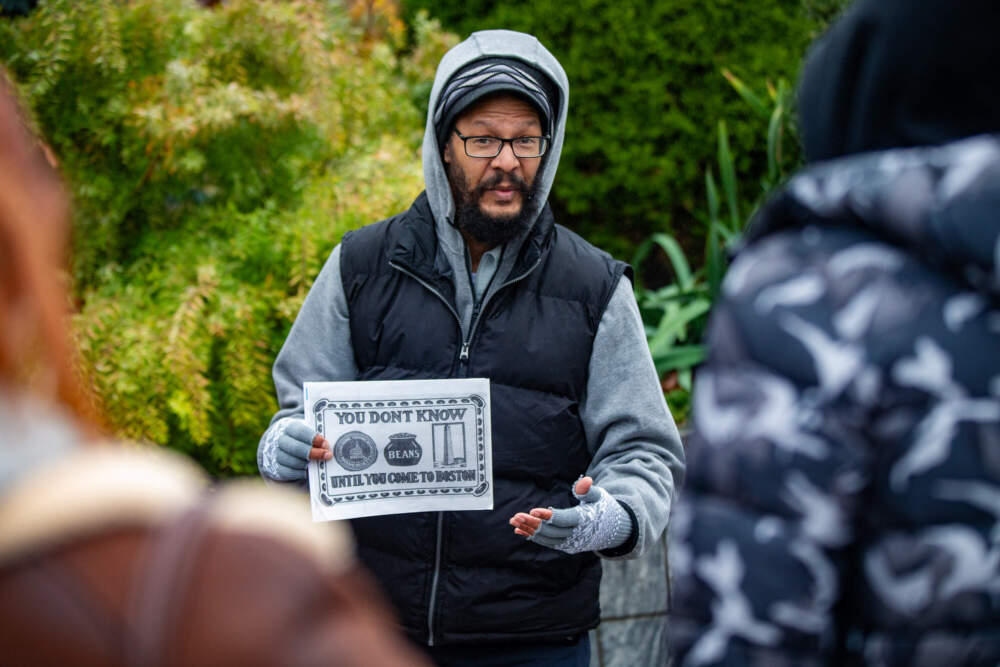
There are multiple accounts of where the famous dish, Boston baked beans, originates from. But one unchanging part of the story is the inclusion of molasses in the recipe, which Boston became a major importer of in the 1700s. "How they'd make the beans, they'd take the sugar juice and the molasses, put it in the beans, and that's why you have the famous Boston baked beans," Mackall says.
Mackall pulls out a copy of a postcard from 1911 that reads "You don't know beans until you come to Boston." It was a popular slogan at the time and used often in tourism paraphernalia. "You got to understand what the history is of that," Mackall says. "Molasses was a major crop from the sugar islands — Cuba, Puerto Rico, Haiti and all of those areas where slaves worked on sugar plantations." According to the National Museum of African American History and Culture, the average lifespan of enslaved people working on "colonial sugar and rice plantations was seven years."
The city became so well known for its beans that eventually Beantown stuck as a popular moniker for Boston. While Massachusetts was not a slave-based society like Southern colonies, Mackall calls it a "slavery-based society," one whose wealth and products were influenced by Boston's involvement in the slave trade. "The great wealth that was made from this entire system helped Boston became a big part of the Atlantic trade," he says.
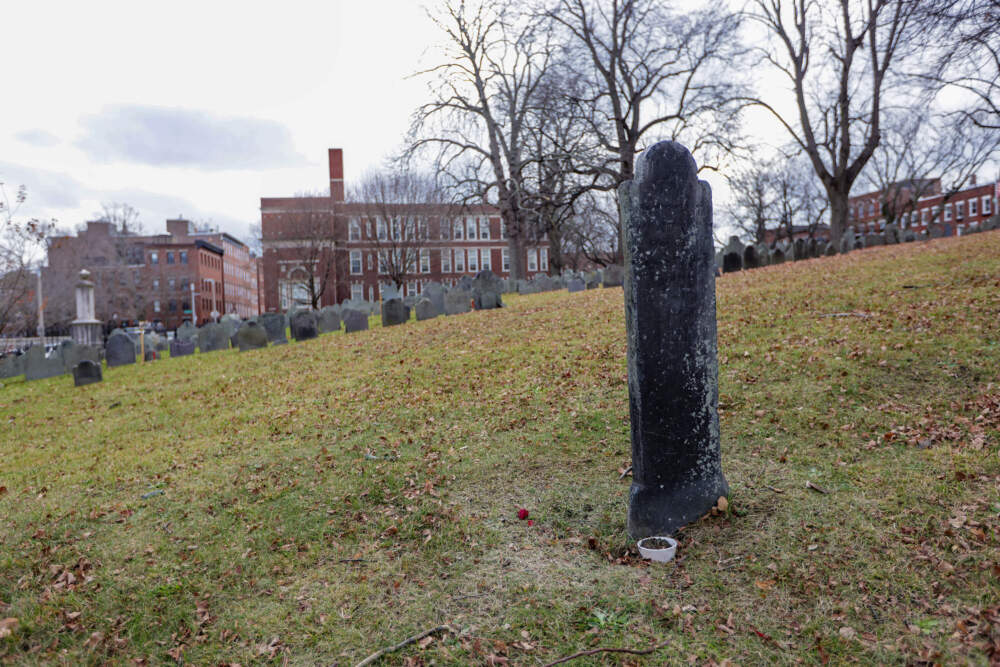
The tour continues through the North End and ends at Copp's Hill Burying Ground, where Black abolitionist and freemason Prince Hall is buried. "The Masonic lodge he started is now worldwide," Mackall explains. He walks over to the back of the cemetery, the site of a bare plot. "There's around a thousand Africans buried here who were freed and enslaved," he says. "Without headstones. This was where they put the Black folks, in this section of the burial ground."
The history featured on Mackall's tour may not be as well known as other staples in Boston's history, like the Boston Massacre or the Revolutionary War. But that doesn't make it any less important. "There is no story being told on these haunted house tours and Freedom Trail tours, USS Constitution... they're walking past our story," says Mackall. He hopes to continue to enlighten people and share more about Black Boston so that those on his tours can "learn a little bit more about the hidden histories of the city that we're in... Our inclusion, our belonging, our survival and our humanity is throughout the entire history [of Boston] and it's right in front of our faces the whole time."
This segment aired on December 7, 2023.
